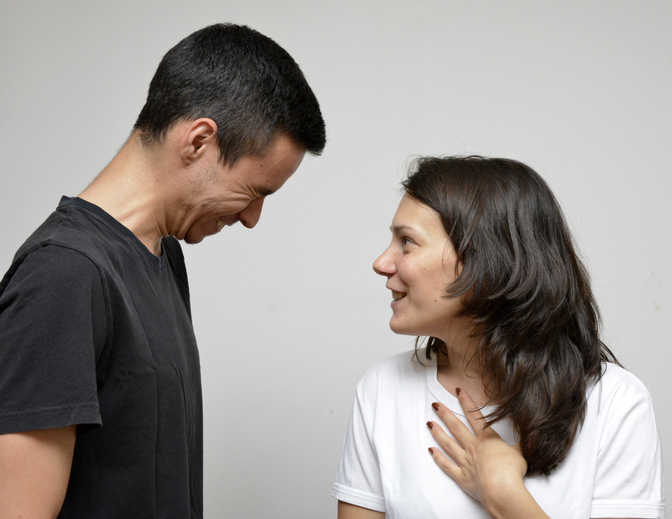The Challenge of Speaking Up for Yourself
By Dr. Margaret PaulOctober 07, 2025
How do you respond to others' subtle judgments and attacks? Learn how to take loving care of yourself in the face of others' wounded behavior.
 What do you do when you get a knot in your stomach in response to someone being subtly inauthentic, angry, judgmental, demanding, passive-aggressive, or needy? You know this person wants something from you - you can feel the pull on you - but it is not overt. Someone else looking at the interaction may not pick up the wounded, pulling energy.
What do you do when you get a knot in your stomach in response to someone being subtly inauthentic, angry, judgmental, demanding, passive-aggressive, or needy? You know this person wants something from you - you can feel the pull on you - but it is not overt. Someone else looking at the interaction may not pick up the wounded, pulling energy.
What most people do in this situation is either go along with what is happening or withdraw, or both. It is very challenging to speak up for yourself in this situation, or to even know what to say.
It doesn't work to ask a question, saying something like, "Why are you being judgmental?"
The other person will generally deny it and you will be hard-pressed to explain it, since it is subtle.
One way of taking care of yourself is to open to compassion for your own feelings. Become aware of the knot in your stomach and trust it. Don't analyze it. Don't tell yourself that it must be your issue. Just accept that something is happening that doesn't feel good to you and then, coming from a loving adult honoring your feeling, decide on the loving action. Below are two examples of what you might say and do when you trust and honor your own feelings:
"Something doesn't feel good. I don't want to have this conversation," and then disengage, walking away or hanging up the phone. It is important to be in your loving adult, giving information rather than attacking. If you attack and leave, then you are blaming and withdrawing, rather than taking loving action on your own behalf. If you are in the car, it is always a good idea to have music and earphones handy if you want to disengage from a conversation.
If it seems appropriate to open to learning with the other person, you might say, "Something here doesn't feel good. I'm wondering why you are telling me this?" You would need to make sure that you are in your loving adult state so that you are truly curious rather than blaming. If you say the same thing from your wounded self, the energy behind it will feel attacking to the other person and the chances are he or she will become defensive. The other person may become defensive anyway, in which case you would need to disengage from the interaction.
While these seem simple, they are not at all easy to do.
First of all, once the knot is in your stomach, it can trigger your fight or flight reaction, and then you will probably forget all about taking care of yourself. You will do what you normally do, which will probably be to ignore, comply, withdraw, or attack - none of which are loving actions toward yourself.
It takes a lot of practice for many people to even notice their feelings. You may have been responding to the knot in your stomach from your wounded self with your protective behavior for so long that you don't even consciously know the knot is there. Learning to stay tuned into your own body and compassionately honor your own feelings is the first part of the challenge in speaking up for yourself. You cannot speak up when you are unaware that there is something to speak up for.
This is why it is so important to practice being in Step One of Inner Bonding all day - staying tuned into your feelings. For your inner child to feel loved by you rather than abandoned by you, you need to know what you feel. Then you can take loving care of yourself in the face of others' subtle or overt wounded behavior.
Heal your relationships with Dr. Margaret’s 30-Day online video relationship course: Wildly, Deeply, Joyously in Love.
 Send this article to a friend
Send this article to a friend  Print this article
Print this article  Bookmarked 0 time(s)
Bookmarked 0 time(s)
| Related Articles |
|---|
| Sharing Feelings: Information or Attack? |
| Relationships: Taking Care of Yourself in the Moment |
Comments
| Author | Comment | Date |
|---|---|---|
| Join the Inner Bonding Community to add your comment to articles and see the comments of others... | ||

Daily Inspiration
We are created in the image of God-which-is-Love. Our essence is love, the same love that is God. We are not our fears, our false beliefs or our many protections. Today, remember who you are. Remember the spark of the Divine which is who you are and manifest this upon the planet.
By Dr. Margaret Paul

 Share with Del.icio.us
Share with Del.icio.us Share with Digg
Share with Digg







